[Welcome back to the blog, Benetech! This post is from KP Naidu, VP of Benetech Labs, with an update on their Service Net.]
Here in Benetech’s home of the San Francisco Bay Area, our communities are facing compounding crises: the pandemic, economic crisis, and most recently out of control wildfires forcing thousands of evacuations and causing a new airborne health crisis. This chaos has not only created a more pressing need than ever for human services that can help people stay healthy and secure, but it has also caused major turmoil among service providers.
The result has been an intensification of challenges that were already hard enough – such as just keeping track of what services are available, and when. This information is now changing even more rapidly given the challenges of providing services while social distancing – and given constrictions in funding of various kinds. Community resource referral providers report that their legacy systems aren’t able to keep up with these rapid changes – and many resorted to using Google Docs to keep track of information about services.
These challenges make collaboration more important than ever. That’s why I’m excited to announce the next iteration of Benetech Service Net.
At Benetech, we specialize in developing open source software that helps people collaborate in working for social good. Through Service Net, we’ve taken on the resource data collaboration challenge: how can we make it easier for many organizations to share information about the resources available to people in need?
Service Net is designed to help referral providers and service providers – along with funders, government, and even end users – share information about resources with each other. Our platform algorithmically matches records from one resource database to other sources of information about the same services, and then it presents the matching results for editing and verification.
By enabling previously-siloed resource databases to “talk” to each other in this way, we can help improve the quality of available information about the safety net – which will, in various ways, strengthen our safety net as a whole – while decreasing the collective costs of time and resources that are currently spent struggling to maintain such information in duplicative silos.
We built Service Net through a pilot partnership with referral providers from across the Bay Area, including United Way Bay Area, Eden I&R, Shelter Tech, Health Leads, Legal Aid Association of California and San Mateo County SSA. Through dialogue among these peer institutions, we developed collaborative data sharing agreements – and then began comparing data in their respective databases. The results were fascinating and valuable: 75% of the records distributed among our partners overlapped – and 25% of the records for any one source were totally unique to that database. This indicates that a lot of time could be saved, and a lot of valuable data could be shared, if these organizations had better tools to collaborate.
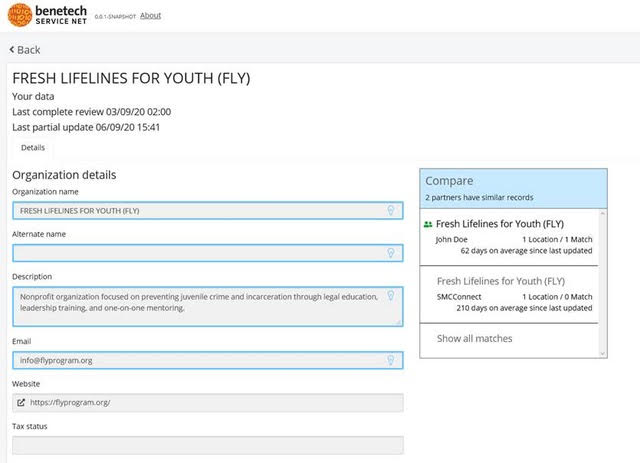
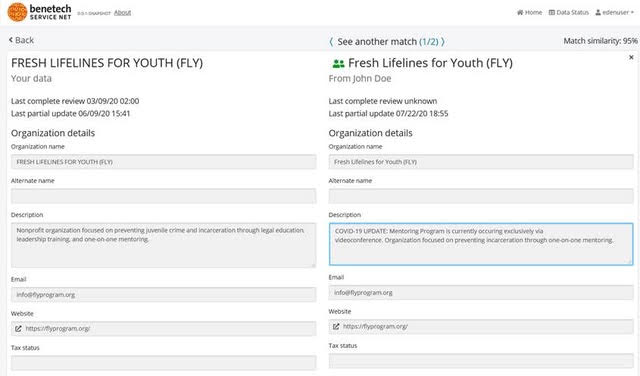
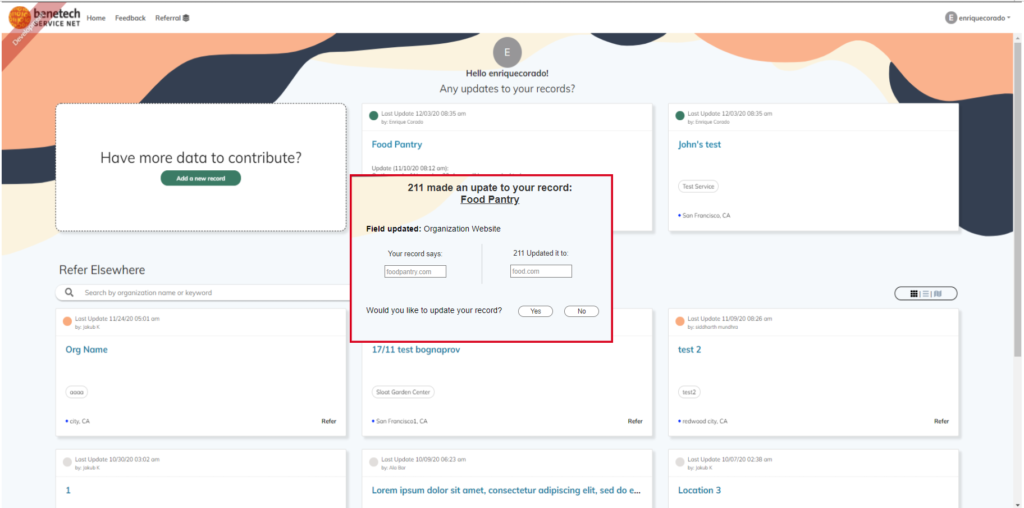
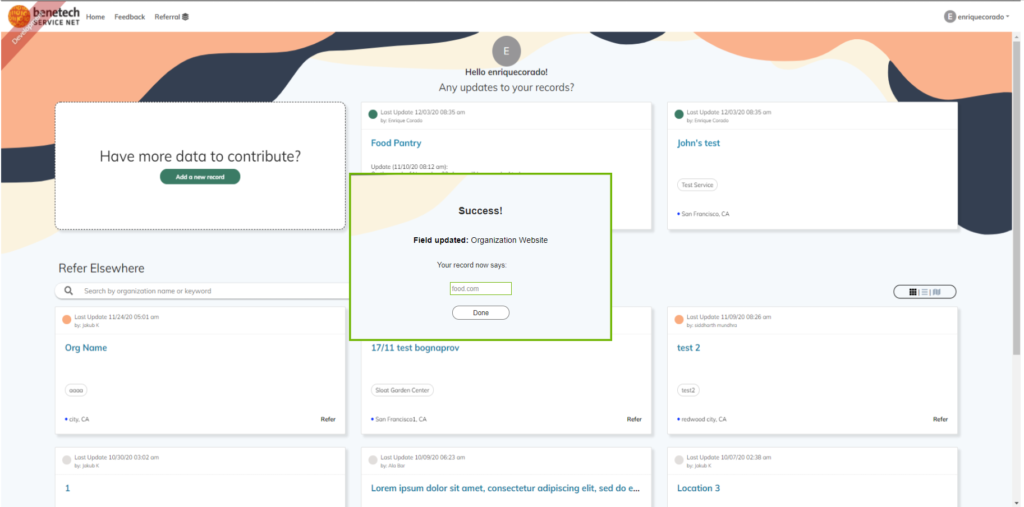
In our pilot project, we built tools that enable resource directory maintainers to compare records, identify conflicting information, share updates, and keep track of verification processes. This system allows referral providers to mutually benefit from each others’ time and expertise, while keeping their own systems and maintaining agency over their own content.
We are now initiating new phases in Service Net’s development, building on the successes we found in the pilot.
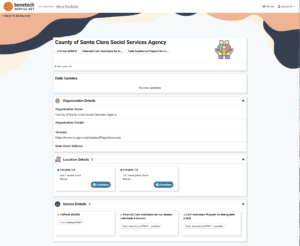
Introducing Service Registers
One of the most important new features is the ability for service providers to update their own information in Service Net, creating records of their services, locations, capacity and availability — which can be matched with other referral providers’ records. This functionality can also be used by governments, funders, and other network authorities to establish official ‘service registers’ — i.e. trustworthy lists of the various services that they commission, available as open data infrastructure for any third party to use.
By hosting such registers, Service Net can serve as a ‘single source of truth’ — providing both direct public access to this information and also bulk open data access for other information systems.
This can benefit service providers who currently are asked over and over again to update their information in many different directories, and now can focus on maintaining this one public record. It can also benefit referral providers, who can access trustworthy data directly from the source (and who have an official channel for seeking clarification if they find incorrect or incomplete information).
Last but not least, such a service register can greatly benefit the commissioning authority – a philanthropy, government, or network agency like a food bank — by not only establishing a standardized set of data about the services in their remit, but also by enabling open data infrastructure to collect data about the use of this data, and to facilitate more sophisticated forms of analysis and data-driven decision-making.
Looking ahead: Taxonomy Management and API integration
What’s next on the Service Net Roadmap? We’ve identified a number of useful features to build out for future releases.
For example, our partners clearly want to have the kind of seamless integration that could enable them to be notified of updates to records within their existing systems – so we’ve developed specifications for API protocols that could enable bi-directional push and pull of resource data updates without having to log into a separate system.
We’ve also identified taxonomy management as an important issue for our users: users want the ability to maintain custom taxonomies. With some further development, we can develop tooling to facilitate the “mapping” of multiple taxonomies to each other, so that different categorical vocabularies can not only be associated with the same records, but also with each other.
All of this development progress is made through partnerships with community-based stakeholders who are already working on these problems. So we are inviting you to get involved! Interested stakeholders in the Bay Area can join our local Service Net network. People interested in the technology can check out our open source repository on Github. And if you’re interested in potentially deploying Service Net in your community, please reach out directly to me.


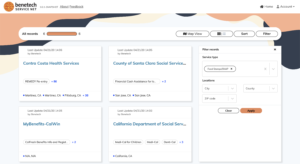
Leave a Reply